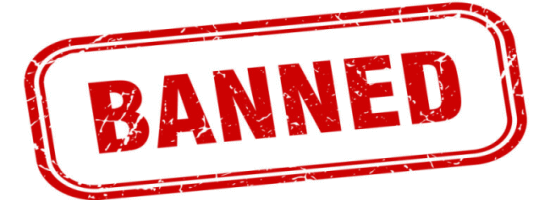We are going to believe that you were living under a rock if you still haven't heard of the endless benefits of a VPN service. However, it's no surprise that this service comes with its fair share of downsides as well.
Recently the governments of several countries recommended banning the usage of a virtual private network (VPN). However, doing that can be a bad idea and lead to more security threats. Do you know how? Let's look at the benefits of VPN and the consequences of banning it.

VPN can help you use the Internet more securely. It provides more protection to your data while using the Internet. VPN can also help the user to bypass the rules set by the government in other countries. If you're still unsure how the VPN works, check out StreamingRant to get detailed information. Here are some of the major benefits of using a VPN.
VPN plays a critical role in securing your network. We often get unnecessary advertisements with spoofed links whenever we work on the Internet. Many times, people click on those links that lead to phishing sites.
It increases the threat of stealing data. Sometimes people share their sensitive data on those links and get into trouble. However, using a VPN can help you avoid these problems and secure your network. Your device will anonymously send and receive data.
Hackers are always on the hunt to steal your private information. They try to access your bank account details or credit card information. A VPN has a 256-bit encryption that protects from these threats. It encrypts data and prevents third parties from accessing it.
You must have observed that certain content is blocked in your country when using a public network. Many websites do not allow users from a particular country to access their content. However, if you are using a VPN like Trust.Zone, you can access the content on those sites.
A parliamentary committee has recommended the union home ministry ban the virtual private network citing cyber security threats. They feel a VPN can help the criminals to remain anonymous while using the Internet.
It will prevent the law enforcement agencies from revealing their identities. Another reason for the VPN ban is they are easily accessible, and criminals can misuse them. So, the committee recommended banning this service to protect the country's interest.
However, this decision can backfire, and hackers can fool people into accessing their private information like a bank account, credit card details, and other personal information.
Some people think VPN and dark web are the same. However, they are completely different. You can use VPN to access the blocked content. On the other hand, you can access content that is not a part of the Internet using the dark web.
If you wish to access the dark web network, you may use TOR (The Onion Routing) project. TOR uses the onion extension, which is different from standard websites. Many countries have banned surfing the dark web. It is because criminal activities are on the rise on this network.
There is a misconception that VPNs make tracking impossible; however, that is not completely true. If there is a technology to encrypt data, it is possible to decrypt that. VPN service providers across the globe are centralized agencies that can track the users' activities on their network.
According to a report, many law enforcement agencies across the globe have been able to track down criminal activities even though they were using a virtual private network. Not only that, the Federal Bureau of Investigation (FBI) in 2013 cracked a dark web marketplace known as Silk Road involved in selling drugs, humans, and many other things and arrested the criminals.
Anonymous VPN services like Trust.Zone don not store any logs and activity of the users, so there is nothing to be taken from data servers.
VPN allows users to surf the Internet on a secure network. It helps people hide their location and device information while using the Internet. A VPN is beneficial when using the Internet, especially for financial transactions and sending private information. It helps the citizens to use a secure network.
Moreover, businesses require their employees to access and update sensitive information regularly. In today's time, when many employees are working from home, a VPN helps them access sensitive information securely and prevents hackers from accessing them. Banning VPN will create a massive problem for them.
Banning VPN has both its pros and cons; however, the cons seem to be outnumbering the pros by a great margin. In the current situation where a great deal of business and data transfer is being carried out online, users find it difficult to rely only on encryption.
VPNs are an added level of security to make sure your data does not fall into the wrong hands. Given the number of online transactions happening every day or even the amount of online presence every second, users want to take every precaution they can to ensure data safety.
Banning VPN could lead to people being extremely vulnerable online and undoubtedly lead to an increased number of online theft cases.